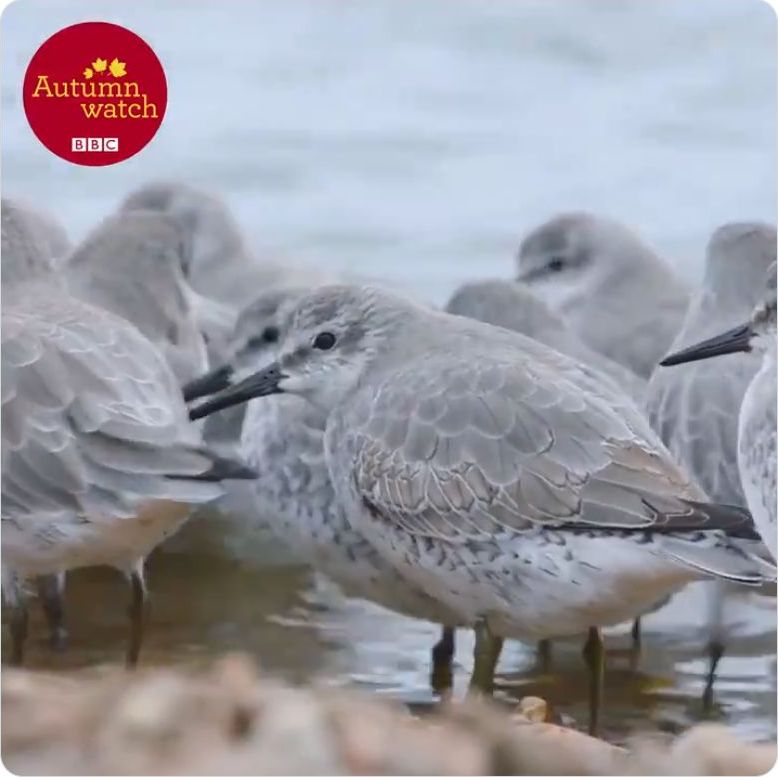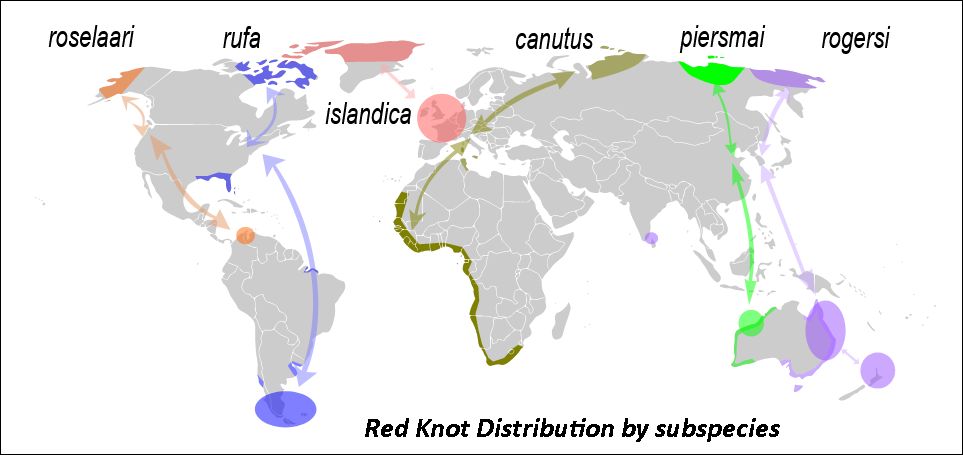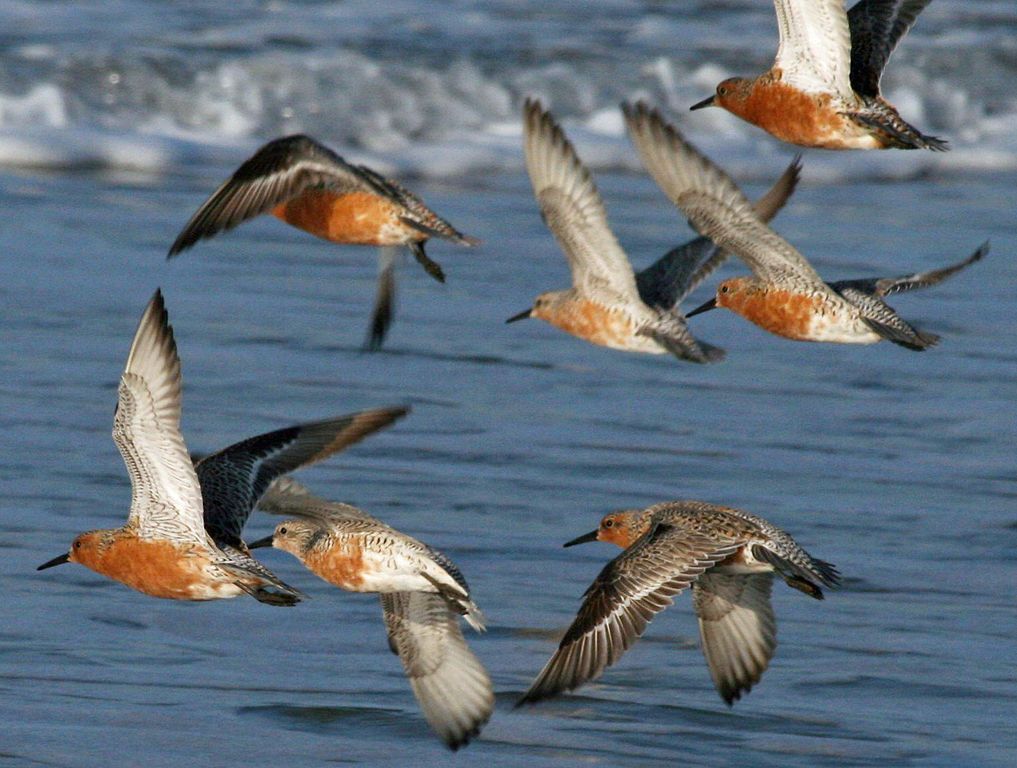
13 November 2020
When red knots come to the UK in autumn they gather in flocks much larger than I have ever seen in the U.S. — sometimes as many as 10,000 birds.
Red knots (Calidris canuta) have a disjoint breeding distribution that determines their choice of winter locations and migration routes. The rufa subspecies visits the eastern U.S. though for most of them the final winter destination is the southern tip of South America.

The islandica subspecies spends the winter in the UK and western Europe after breeding in Greenland and Ellesmere Island, Canada.
Now in non-breeding plumage they are no longer red. The British call them “knots.” The flocks are spectacular!
A magical mindful moment with a flurry of knots! ?
— BBC Springwatch (@BBCSpringwatch) November 11, 2020
? Tom Rowland #Autumnwatch ? pic.twitter.com/Z2i85OcJMg
Next spring they will be red again and head back north.

(photos and map from Wikimedia Commons; click on the captions to see the originals)
I wonder what the red knots use as food during their stopovers on the other major migration routes. We know that the red knots in the Americas rely heavily on horseshoe crab eggs, but given the range for horseshoe crabs worldwide, they may only figure in to the Asian route perhaps. Curious.